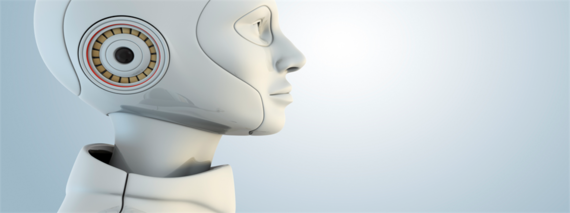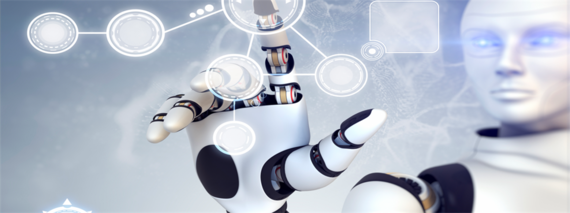- How many employees are on your P&L that are titled knowledge workers but are modern manual workers performing repeated mundane tasks optimal for automation?
- How many mistakes/errors are occurring, and what security and privacy risks are being introduce daily to your organization by humans conducting tasks that should be conducted my marginally intelligent machines?
- What happened to the euphoria we were all sold as a promise of knowledge workers, where we would all be visionaries?
In 2011 Business Week ran an article suggesting every worker is a knowledge worker. While this may be true standing on the body of knowledge surrounding "knowledge workers" gifted to the world by Peter Drucker, when we look past the runway of Drucker's foresight the term "knowledge worker" starts to fall short on its promise to enterprises.
While today's knowledge workers chug away using more knowledge and cognition than manual workers from factories a century ago resulting from the industrial revolution, the move from manual workers to knowledge workers was not a single event in history, instead it is the beginning of a trajectory that will likely continue forever. Every wave of knowledge work will forever become a series of repeatable manual steps commoditized and optimized for automation constantly beckoning mankind to use more cognition in work, and less muscle.
The first manual workers were termed "skilled workers" ... modern manual workers were termed knowledge workers.
Knowledge workers initially used new knowledge to do work while the industrial revolution automated manual tasks. But, today most knowledge workers are conducting several repeatable manual tasks that beg for automation as we enable the Internet revolution. Think about a systems administrator, or a platform architect, or better yet a production and deployment manager in a large enterprise technology department.
Most of these "knowledge" worker roles described as examples above are barely using knowledge and rarely using cognition. The tasks are manual and repeatable such as install, test, configure, deploy, apply load, measure, tweak, freeze, replicate, and repair etc etc. More and more knowledge workers use less knowledge and more manual effort, less cognition and more muscle.
The big question is what new revolution will automate the manual tasks of today's knowledge workers freeing them from the broken promise?
Lets make this personal, hundreds of million of young students globally study for four years to earn college degrees with the hope of creating, innovating, disrupting and contributing awesome sauce with their brilliant and divergent cognition as visionaries. Sadly, the lion's share of these young minds end up being modern manual workers labeled knowledge workers. Slowly, their dreams disappear into a mundane reality of conducting repeatable tasks over and over. Very few use cognition, and become visionaries; but they all wanted to.
I believe we have today the knowledge, science and technology to welcome a new global labor defining revolution to follow the Internet revolution and Industrial revolution. This new revolution will unchain billions of new correctly termed modern manual workers once called knowledge workers from the mundane tasks of today's offices to a world where cognition can be used as the rule instead of the exception.
GE does a brilliant job calling for the Industrial Internet, a merging of the Industrial revolution and the Internet revolution. I believe strongly in the value and velocity of the Industrial Internet and will spend significant time delivering thought leadership here in the months to come.
However.
What I think we have not considered as yet is Artificial Intelligence. AI is the knowledge, science and technology we have creating the AI revolution and enabling the ability for us to automate billions of modern manual workers once termed knowledge workers. As an example the AI Revolution will automate the tasks such as install, test, configure, deploy, apply load, measure, tweak, freeze, replicate, and repair etc. from roles such as system administrators, platform architects, or production and deployment managers in large enterprise technology department discussed above.
Artificial Intelligence will go beyond the reactive automations tools we have into predictive automation tools, creating/replacing the "knowledge" needed.
I know what you are probably thinking, how many folks will loose their jobs to Artificial Intelligence? The answer is simple, none permanently. This was the exact fear we had at the beginning of the Industrial revolution, and what happened was pure beauty. Trillions of dollars of Global GDP were reallocated away from paying men and women to use axes and hammers to use buttons and levers.
Manual jobs lost were replaced with upgraded knowledge jobs.
This macro allocation of GDP redefined humanity, as we knew it. Public education delivered at scale to the masses became a reality and innovation grew exponentially as evolution went supersonic, literally. We used more knowledge and less muscle and accelerated evolution.
The Artificial Intelligence revolution will reallocate trillions of dollars away from modern manual workers once termed knowledge workers to continue the momentum going away from axes and hammers to buttons and lever eventually to simply thinking. When artificial intelligence automates the manual tasks left in the world, we will welcome a new class of workers called visionary workers.
Visionary workers will be paid to think, and innovation will grow more exponentially, enabling evolution at supersonic speed to become just the tact of existence.
There is a lot of detail, history, science and mathematical crunching embedded in this somewhat cheeky piece of writing, but if you concur, what are your thoughts on the questions below?
- How many employees work for you that are termed knowledge workers but are really modern manual workers?
- How many of those jobs can Artificial Intelligence automate freeing those humans to finally go chase their dreams?
- How many people did you hire hoping they were visionaries, and probably still can be?
Welcome to the Artificial Intelligence Revolution and a workforce of visionary workers. In the next decade I estimate 500 Billion of global annual GDP paid to modern manual workers (knowledge workers) will be automated by Artificial Intelligence.
How much of these savings are you going to take advantage of?

